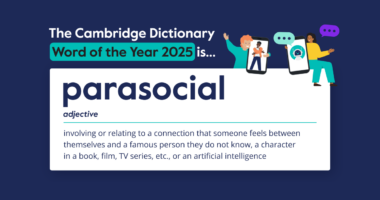No European enterprise will shift entirely from U.S. hyperscalers in 2026 despite intensified efforts to reduce dependence on global resources and achieve digital sovereignty, according to Forrester’s 2026 European Predictions.
The research firm unveiled its predictions at Forrester’s Technology & Innovation Summit EMEA in London, forecasting that a complete shift away from giants such as AWS, Google Cloud and Microsoft Azure to local suppliers is impractical in the short to medium term. Specific industries will begin migrating for niche use cases, but the impact on the overall European cloud market will be negligible.
Geopolitical tensions will continue impacting firms across Europe in 2026, with uncertainty around U.S. policy decisions affecting both short-term and long-term planning. The quest to reduce dependencies on non-European firms, ranging from Chinese supply chains to U.S. digital platforms, large language model providers and hyperscalers, will intensify.
The predictions indicate that EU legislative simplification will fail to deliver enterprise cost savings. The EU proposed an “Omnibus” package in 2025 to ease compliance with laws such as CSRD, GDPR and the Data Act for smaller firms, touting savings of €4.4 billion from simplification of sustainability rules. However, these savings won’t emerge as large firms’ compliance obligations aren’t changing.
Whilst smaller firms will see a reduced compliance burden, their enterprise customers will issue lengthy due-diligence queries. GDPR exemptions, such as dropping records of processing activities for firms with fewer than 750 staff, will backfire as larger controllers flood smaller firms with due-diligence requests, forcing many to remain compliant.
Consumer daily use of generative AI will double in most European countries in 2026 as AI becomes increasingly embedded in devices, software and services. Despite massive awareness and experimentation, only 6 per cent of European consumers currently use generative AI daily.
European firms will lag their U.S. counterparts by 10 per cent on most generative AI use cases in full production, due to most players launching AI initiatives in the U.S. before rolling them out to Europe, less mature AI skills amongst European firms, and tighter EU regulations. The UK will buck both trends with lower regulations and no language gap.
Defence spending will drive a 20 per cent technology budget uplift for EU critical infrastructure operators. In June 2025, NATO members pledged to raise defence spending to five per cent of GDP, with 1.5 per cent earmarked for “enabling” infrastructure, leading Forrester to predict public-sector bodies and critical infrastructure operators will see tech budgets rise by 20 per cent next year.
The UK AI strategy will drive public sector productivity but erode government trust. The UK government’s enthusiasm for U.S. AI technology through partnerships with Anthropic and OpenAI, refusal to sign international agreements on AI governance, and lack of interest in passing binding AI regulation will erode UK citizen trust in the government.
Dane Anderson, SVP, International Research & Product at Forrester, said: “The European Union is making a concerted effort to become more competitive and reduce its dependence on global tech infrastructure.” However, ongoing volatility and operational constraints will compel European businesses to pursue more pragmatic strategies in both the long and short term.











